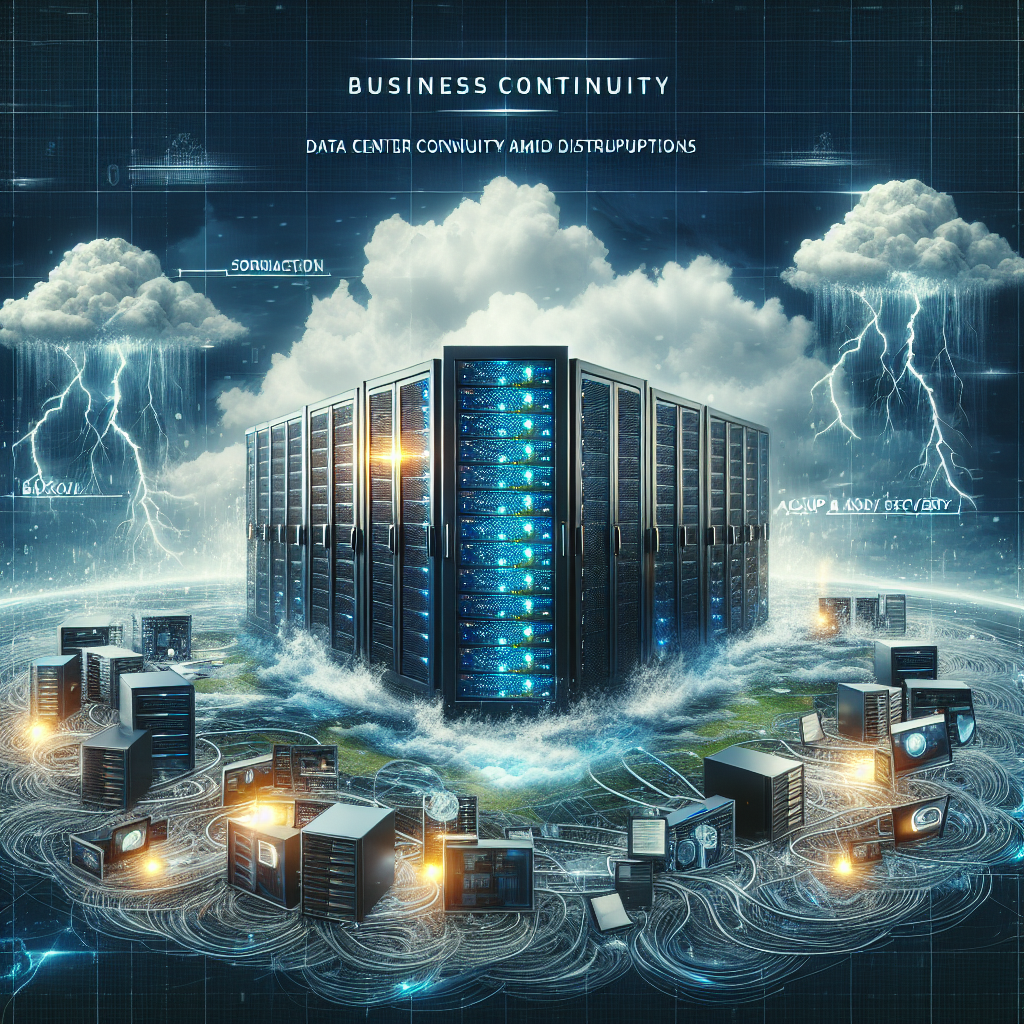In today’s digital age, data centers play a crucial role in storing and managing vast amounts of information for businesses around the world. With the increasing reliance on data for daily operations, ensuring business continuity in the face of disruptions is essential for the success and survival of any organization.
Data center disruptions can occur due to a variety of factors, including natural disasters, power outages, cyber-attacks, and equipment failures. To mitigate the impact of these disruptions and maintain business continuity, companies need to implement effective strategies that ensure their data centers can continue to operate seamlessly even in the face of adversity.
One key strategy for maintaining data center business continuity is to have a comprehensive disaster recovery plan in place. This plan should outline the steps that need to be taken in the event of a disruption, including procedures for data backup and restoration, communication protocols, and alternative operating procedures. Regular testing and updating of the disaster recovery plan are also essential to ensure that it remains effective and up-to-date.
Another important strategy is to invest in redundant systems and infrastructure. This includes having backup power sources, such as generators or uninterruptible power supplies (UPS), to ensure that data center operations can continue in the event of a power outage. Redundant network connections and data storage systems can also help to minimize downtime and ensure that critical data remains accessible even in the face of disruptions.
Implementing robust cybersecurity measures is also crucial for maintaining data center business continuity. Cyber-attacks can pose a significant threat to data center operations, so it is essential to have strong security protocols in place to protect against unauthorized access and data breaches. This includes regular security audits, employee training on cybersecurity best practices, and the use of encryption and other security measures to safeguard sensitive data.
Regular monitoring and maintenance of data center infrastructure are also important for ensuring business continuity. This includes conducting regular inspections of equipment, performing software updates and patches, and monitoring systems for any signs of potential issues. By proactively addressing potential problems before they escalate, companies can minimize the risk of disruptions and ensure that their data center operations remain stable and reliable.
In conclusion, maintaining data center business continuity in the face of disruptions requires a proactive and comprehensive approach. By implementing strategies such as disaster recovery planning, redundant systems, cybersecurity measures, and regular monitoring and maintenance, companies can ensure that their data center operations remain resilient and reliable even in the face of unexpected challenges. Investing in these strategies is essential for protecting the integrity of data and ensuring the continued success of the organization.


Leave a Reply